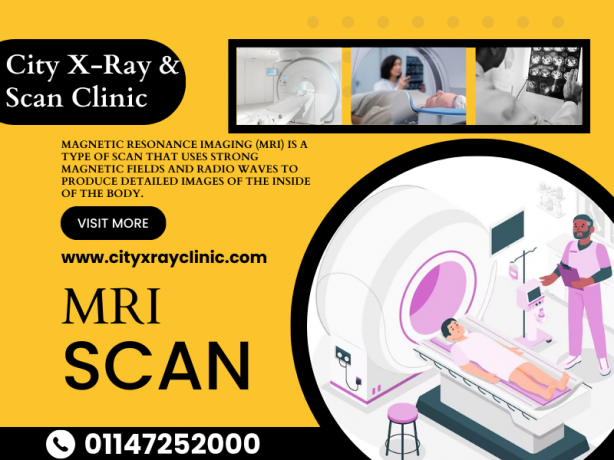Introduction
Medical technology has advanced significantly in recent years, and one of the most crucial diagnostic tools in modern medicine is the MRI, short for Magnetic Resonance Imaging. This revolutionary imaging technique has transformed the way healthcare professionals diagnose and treat various medical conditions. In this blog post, we will delve into the world of MRI, exploring what it is, how it works, why you might need one, how to prepare for an MRI, and most importantly, whether MRI scans are safe or MRI Scan Price In Delhi.
What is MRI and How Does it Work?
Magnetic Resonance Imaging (MRI) is a non-invasive medical imaging technique that uses a powerful magnetic field and radio waves to generate detailed images of the inside of the body. Unlike X-rays and CT scans, which use ionizing radiation, MRI relies on the behavior of hydrogen atoms in the body when exposed to these magnetic fields and radio waves.
Here's a simplified explanation of how it works:
- When you enter the MRI machine, the hydrogen atoms in your body align themselves with the magnetic field.
- Radio waves are then applied, causing these atoms to temporarily shift from their normal alignment.
- When the radio waves are turned off, the hydrogen atoms return to their original alignment.
- As they return, they emit radio signals, which are captured by the MRI machine's sensors.
- The data collected is processed by a computer to create detailed, cross-sectional images of the area being examined.
Why Would You Need an MRI?
MRI is a versatile tool used to diagnose a wide range of medical conditions and provide essential information to guide treatment. Some common reasons for needing an MRI include:
- Soft Tissue Evaluation: MRI is excellent at visualizing soft tissues, making it valuable for diagnosing conditions affecting the brain, spinal cord, muscles, and organs like the heart, liver, and kidneys.
- Orthopedic Issues: It's frequently used to assess joint and musculoskeletal problems, such as ligament tears, cartilage damage, and herniated discs.
- Cancer Detection: MRI is effective at detecting and monitoring certain types of tumors and assessing their size and location.
- Vascular Imaging: It can help evaluate blood vessels, making it crucial in diagnosing vascular conditions like aneurysms.
- Neurological Conditions: MRI is often used to investigate neurological disorders, such as multiple sclerosis, strokes, and brain injuries.
How to Prepare for an MRI
Before your MRI appointment, it's essential to follow specific guidelines to ensure the procedure goes smoothly:
- Inform Your Healthcare Provider: Share any medical conditions, allergies, or previous surgeries with your healthcare provider and the MRI technologist.
- Clothing and Jewelry: Wear comfortable clothing without metal zippers or buttons. You may be asked to remove jewelry, eyeglasses, and any metal objects.
- Fasting: If you're having an abdominal MRI, you may be asked to fast for a few hours before the scan.
- Medications: Continue taking your prescribed medications unless instructed otherwise by your doctor.
- Relaxation: Anxiety can affect the quality of the MRI images. Practice relaxation techniques or ask about options for sedation if you're claustrophobic or anxious.
Is an MRI Scan Safe?
MRI is generally considered safe and does not involve ionizing radiation, making it preferable for certain diagnostic purposes. However, there are some precautions to be aware of:
- Metal Objects: MRI machines generate strong magnetic fields, so it's crucial to remove all metal objects before entering the MRI room. This includes items like pacemakers, implants, and even some tattoos containing metallic ink.
- Pregnancy: While there is no conclusive evidence that MRI is harmful during pregnancy, it is usually avoided during the first trimester unless absolutely necessary.
- Claustrophobia: MRI machines can be confining, which may cause anxiety in some individuals. Discuss this with your healthcare provider if you are concerned.
Conclusion
Magnetic Resonance Imaging (MRI) is a remarkable medical advancement that plays a crucial role in diagnosing and monitoring various medical conditions. By understanding what MRI is, how it works, why you might need one, and how to prepare for it, you can approach this diagnostic tool with confidence. Moreover, rest assured that MRI scans are generally safe, but it's vital to follow safety guidelines to ensure a smooth and accurate examination. Always consult with your healthcare provider if you have any concerns about your MRI procedure.






